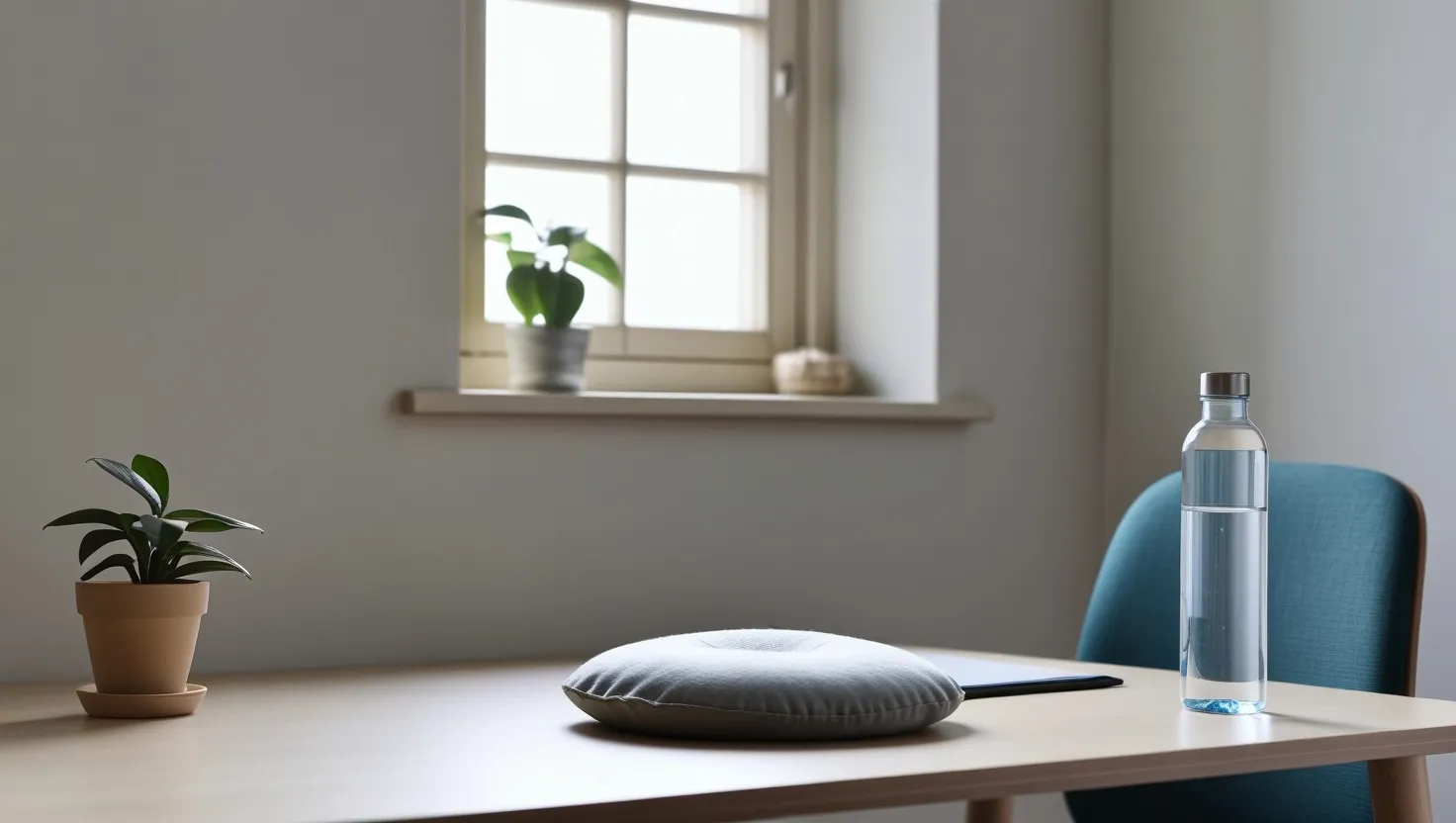In the hustle and bustle of our modern lives, maintaining focus and productivity can often feel like an insurmountable task. However, the key to achieving this balance may lie in the simplest of actions – micro-habits. These tiny, intentional behaviors, when practiced consistently, can create a significant impact on our daily lives.
The Power of Micro-Habits
Micro-habits are the building blocks of larger behavioral changes. They are so small that they require little to no willpower to complete, making them incredibly easy to adopt and sustain. For instance, instead of aiming to meditate for an hour each day, starting with just a two-minute meditation can be a game-changer.
The Two-Minute Meditation
Imagine beginning each workday with a brief two-minute meditation. This simple practice can clear your mind and set a focused tone for the day ahead. As the renowned mindfulness expert, Jon Kabat-Zinn, once said, “The best way to take care of the future is to take care of the present moment.” Those two minutes can be the difference between a chaotic and a focused day.
The Hourly Stretch
Sitting for long periods can be detrimental to both our physical and mental health. Setting an hourly reminder to stand up and stretch for just one minute can improve blood flow, reduce fatigue, and refresh your mind for the next hour of work. This habit is a small but powerful way to keep your body and mind aligned.
The Daily Prioritization
Starting your day with a clear plan is essential for productivity. Spend five minutes each morning identifying your top three priorities for the day. This habit ensures you focus on high-impact tasks and avoid getting bogged down by less important ones. As Stephen Covey put it, “The key is not to prioritize what’s on your schedule, but to schedule your priorities.”
The Focus Phrase
We all get distracted at times, whether it’s by social media, email, or simply daydreaming. Creating a personal mantra or phrase to repeat when you feel distracted can be a mental trigger to redirect your attention to the task at hand. For example, “Stay focused, stay productive” can become your go-to phrase to keep you on track.
The Hydration Habit
Proper hydration is crucial for cognitive function and energy levels. Place a water bottle on your desk and aim to finish it by lunchtime, then refill for the afternoon. This simple habit can make a significant difference in how alert and focused you remain throughout the day. As the saying goes, “Water is the driving force of all nature.”
The Screen-Free Transition
In a world dominated by screens, taking short breaks from them can be incredibly beneficial. Implement a five-minute screen-free period between major tasks. Use this time to reset your focus and prepare for the next activity. This small break can help you transition smoothly and maintain your productivity.
The Gratitude Minute
Ending each workday by writing down one thing you’re grateful for professionally can foster a positive mindset and work satisfaction. This practice helps you reflect on the good things that happened during the day and sets a positive tone for the next day. As Melody Beattie said, “Gratitude unlocks the fullness of life. It turns what we have into enough, and more.”
How Micro-Habits Work
Micro-habits work by breaking down larger goals into smaller, manageable steps. By focusing on these small actions, you create a roadmap for your day that is clear and achievable. For example, instead of setting a goal to read a book a week, a micro-habit could be to read just one page each day. This approach reduces resistance and makes it easier to start and maintain the habit.
The Cumulative Effect
The beauty of micro-habits lies in their cumulative effect. When practiced consistently, these small actions can lead to substantial improvements in your productivity and overall well-being. It’s not about making grand changes overnight but about taking small steps each day that add up over time.
Real-Life Examples
Seeing how others implement micro-habits can provide inspiration and direction. For instance, in the workplace, starting each day by clearing your desk for five minutes can create a more organized environment, boosting productivity. Another example is dedicating the first five minutes of a meeting to set an agenda, ensuring that discussions remain focused and productive.
Consistency and Accountability
Consistency is key when adopting micro-habits. These small, intentional actions, when performed regularly, have a profound impact on your daily life. By incorporating micro-habits like early rising, meditation, or exercise into your morning routine, you can significantly enhance your energy levels and sharpen your focus.
Reflective Practices
Reflective practices are also crucial in maintaining and improving micro-habits. Taking a few minutes each day to reflect on what you’ve accomplished and what you could improve can help you stay on track. This reflective practice fosters discipline and creates a routine that becomes ingrained in your daily life.
Addressing Counter-Arguments
When implementing micro-habits, it’s important to address potential counter-arguments. For instance, some might argue that these habits are too small to make a difference or that they take up too much time. However, the truth is that these small actions can be integrated seamlessly into your daily routine without disrupting your schedule.
The Role of Time Management
Effective time management is another critical aspect of maintaining micro-habits. Techniques like time blocking and the Pomodoro Technique can enhance focus and productivity during work intervals. By dedicating set periods for particular activities, you can maintain focus and minimize distractions.
Personal Growth
Micro-habits are not just about productivity; they also foster personal growth. By committing to small daily practices, such as learning one new word in a language or writing one sentence in a journal, you can turn what seems like a daunting task into a manageable daily practice.
Interactive Reflection
As you consider adopting these micro-habits, ask yourself a few questions: What areas of my life need improvement? How can I integrate these habits into my daily routine without feeling overwhelmed? What small actions can I take today to set myself up for success tomorrow?
Conclusion
In conclusion, micro-habits are powerful tools for enhancing focus and productivity. By incorporating these small, intentional actions into your daily routine, you can create a ripple effect that leads to significant improvements in your life. Remember, it’s the small steps that often lead to the greatest changes.
As Aristotle once said, “We are what we repeatedly do. Excellence, then, is not an act, but a habit.” By embracing these micro-habits, you’re not just improving your productivity; you’re building a foundation for excellence in all aspects of your life.






